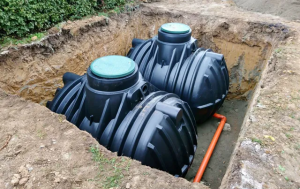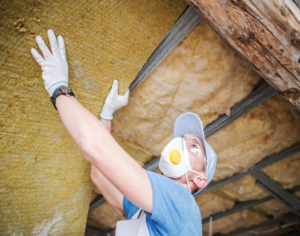A handyman is a professional who takes care of small repairs, fixes, and updates around the house. This can include tasks like appliance installation, furniture assembly, and painting.
The handyman path works well for those who want a lifestyle business with flexibility and variety. However, it’s not ideal for those who plan to scale their business. Contact Handyman Chandler now!

Handymen can provide a range of plumbing services, including unclogging toilets, drains, and sinks and fixing leaking faucets. They can also replace shower heads, which helps conserve water and reduce homeowners’ utility bills. These tasks require expert knowledge and tools to ensure compliance with local regulations and safety standards.
Gutter cleaning and maintenance are another common service that handymen can offer to keep homes well-protected against water damage. These services are essential to maintaining the integrity of a home’s structure and preventing costly repairs in the future. Handymen are also typically equipped to handle appliance installations and repair, but specialized knowledge of electrical, plumbing, and HVAC systems is required for these jobs. These professionals must comply with state regulations pertaining to the maximum amount of labor and materials they can charge for these projects without requiring a license.
Other general household maintenance services that handymen can provide include lawn and garden work, painting, and repairing fences and decks. They can also clean and pressure wash the exterior of a home. Additionally, they can help with minor pest problems, though tasks involving pesticide use should be left to professional pest control experts.
It’s important for handymen and homeowners alike to understand the scope of work a licensed professional can carry out. By recognizing what tasks require specialized expertise, both parties can work together to create a functional and comfortable living environment while prioritizing legal compliance.
Handymen are a convenient and reliable resource for many household maintenance and improvement needs. With the right licensing and insurance coverage, these professionals can tackle a variety of complex and specialized home tasks. Recognizing the limitations of their abilities allows homeowners to hire the right professionals for specialized projects and avoid potentially dangerous consequences. It’s also important to prioritize legal compliance to protect the integrity of a home and prevent costly mistakes. This includes ensuring that all work is carried out by licensed, insured professionals and that proper documentation is provided for each job. To learn more about the importance of hiring qualified and insured home improvement professionals, contact a trusted insurance agency like Amenify today.
Electrical
Most of the components in your home or office require electricity to function. Whether your appliances, HVAC, televisions or computers are experiencing problems or you simply want to upgrade your wiring and circuitry, the professional electricians at Handyman are prepared to provide quick and efficient electrical repair and installation services.
You’ve heard horror stories about homeowners who hired a handyman to do electrical work and ended up with scorching walls, floors and even the entire house. Whether due to cutting corners or just plain ignorance of how to safely perform electrical work, these problems can be devastating and extremely expensive.
When you hire a professional electrician, however, you can feel confident that the job will be done correctly and to your satisfaction. Our local experts are trained to evaluate and correct all types of electrical problems, including faulty breaker boxes, fuses, circuits, wires and outlets. We also offer preventative maintenance services that can reduce the likelihood of future issues and help you save money on your utility bills.
Our licensed technicians are familiar with the latest technology in smart home wiring and devices. We can help you upgrade your electric panel and add outlets for electric car charging stations, lighting control systems and more. We can also install and repair ceiling fans, outdoor GFI outlets, garbage disposals and appliance hookups.
Other services that our certified electricians can handle include inspecting and repairing smoke and carbon monoxide detectors, installing indoor lighting fixtures and outdoor landscape lighting to create a welcoming atmosphere, as well as enhancing your curb appeal with decorative lighting. We can even install and repair security systems and remote-controlled climate controls.
It is important to check with your city or town hall to see if the work you need requires a permit. If so, you’ll need a licensed contractor instead of a handyman. If a permit isn’t required, you should still check with your local utility companies to see if any special equipment or training is needed. Lastly, it’s a good idea to verify that your handyman has the proper insurance in case of damage to your property or injury to your home’s occupants.
Painting
A fresh coat of paint can transform a living space, elevating its aesthetic and boosting its value. Handymen offer interior and exterior painting services, transforming rooms into lively spaces that are both comfortable and stylish. They also excel in addressing small imperfections in previously painted surfaces, leaving you with a polished and flawless finish.
The cost of a room painting project depends on several factors, including the size of the space and its functionality. However, average costs range from $200 to $500 for an average-sized room. This includes labor and basic materials, although the actual paint costs will vary. It’s always advisable to get quotes from multiple local handymen to obtain precise estimates for your unique project.
Handymen can help you with a variety of other home improvement tasks, including installing crown molding for a premium motif and painting your ceilings. But they’re not licensed painters, and for more complex projects like re-tiling the entire shower or knocking down walls to make way for a new master suite, you’ll want to hire a professional with deep expertise in these specific areas.
Painting contractors on Handy are trained experts, who are able to handle all aspects of your painting project from start to finish. They use high-quality, durable paints that will stand up to weather and other environmental factors, ensuring that your results last for years to come. They’ll also carefully prep the surface before painting, repairing cracks and other defects. Finally, they’ll use a smooth, even application to achieve a clean and crisp look that will boost the value of your property.
In addition to interior and exterior painting, Handy professionals can also paint trim and other fixtures. They can also apply wall coverings, such as wallpaper or textured drywall. They can also perform minor gutter repairs, preventing blockages that can lead to costly water damage.
Carpentry
A handyman’s jack-of-all-trades skillset makes them suited to tackle a wide range of minor carpentry jobs. From building shelves that maximize storage and display decor to installing cabinets and window or door trim, these professionals are adept at making small changes that improve a home’s aesthetics and functionality.
If your wood furniture is starting to show signs of wear, a handyman can skillfully repair and rejuvenate it, extending its lifespan. They are also adept at installing a variety of ceiling and lighting fixtures to elevate the look of any room. And as an extra service, they can install and repair various types of household appliances, ensuring that essential equipment like refrigerators and washing machines continue to run properly.
Keeping a clean and organized space helps prevent clutter that can lead to mold, mildew, and other moisture-related issues. Handymen are equipped to tackle basic cleaning tasks like sweeping, mopping floors, and vacuuming, as well as more detailed chores like scrubbing bathtubs, washing windows, and deodorizing bathrooms. They can even handle more extensive cleaning projects, like removing wallpaper and refinishing wood surfaces.
As a part of their overall maintenance services, handymen can also install and repair fences and gates. They can build and replace exterior gates, repair fence panels and posts, and install decorative railings and latches. They can also make small repairs to outdoor structures like sheds and gazebos, as well as paint them and apply stain or sealant.
Leaky faucets, clogged drains, and malfunctioning toilets are no match for a handyman’s plumbing prowess. These professionals are trained to fix common household leaks, ensuring that your water supply is running smoothly and efficiently. They can also replace shower heads and faucets, as well as add or remove caulking in kitchens and bathrooms.
Aside from repairing leaky faucets, a handyman can also provide other minor home improvement and maintenance services like fixing loose hinges on cabinet doors, replacing light bulbs, or installing a new dishwasher. Additionally, they can assist with basic electrical work by troubleshooting and resolving problems with appliances, installing ceiling fans or lights, and setting up televisions.








